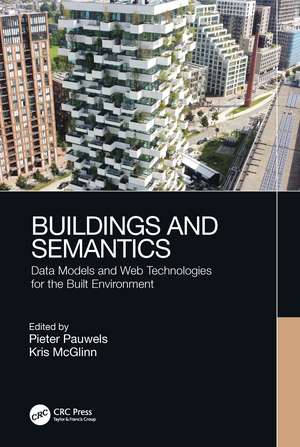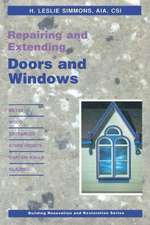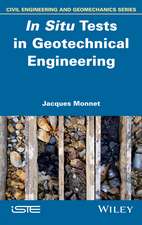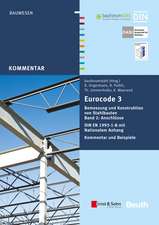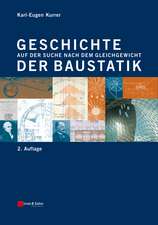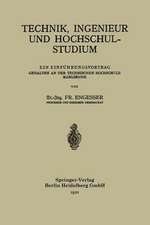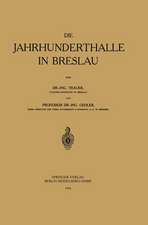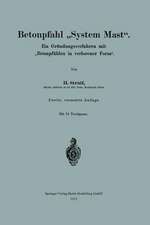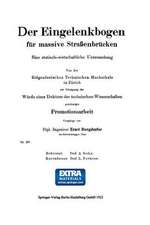Buildings and Semantics: Data Models and Web Technologies for the Built Environment
Editat de Pieter Pauwels, Kris McGlinnen Limba Engleză Hardback – 25 iul 2022
| Toate formatele și edițiile | Preț | Express |
|---|---|---|
| Paperback (1) | 357.92 lei 3-5 săpt. | +27.31 lei 7-13 zile |
| Taylor & Francis Ltd. – 19 dec 2024 | 357.92 lei 3-5 săpt. | +27.31 lei 7-13 zile |
| Hardback (1) | 572.29 lei 3-5 săpt. | +26.61 lei 7-13 zile |
| CRC Press – 25 iul 2022 | 572.29 lei 3-5 săpt. | +26.61 lei 7-13 zile |
Preț: 572.29 lei
Preț vechi: 715.37 lei
-20% Nou
Puncte Express: 858
Preț estimativ în valută:
109.51€ • 119.32$ • 92.28£
109.51€ • 119.32$ • 92.28£
Carte disponibilă
Livrare economică 02-16 aprilie
Livrare express 19-25 martie pentru 36.60 lei
Preluare comenzi: 021 569.72.76
Specificații
ISBN-13: 9781032023120
ISBN-10: 1032023120
Pagini: 328
Ilustrații: 15 Tables, black and white; 35 Line drawings, black and white; 71 Halftones, black and white; 106 Illustrations, black and white
Dimensiuni: 174 x 246 x 24 mm
Greutate: 0.68 kg
Ediția:1
Editura: CRC Press
Colecția CRC Press
ISBN-10: 1032023120
Pagini: 328
Ilustrații: 15 Tables, black and white; 35 Line drawings, black and white; 71 Halftones, black and white; 106 Illustrations, black and white
Dimensiuni: 174 x 246 x 24 mm
Greutate: 0.68 kg
Ediția:1
Editura: CRC Press
Colecția CRC Press
Public țintă
Academic, Adult education, Postgraduate, Professional, Professional Practice & Development, Undergraduate Advanced, and Undergraduate CoreCuprins
1. Building Product Models, Terminologies, and Object Type Libraries. 2. Property Modelling in the AECO Industry. 3. Web Technologies for Sensor and Energy Data Models. 4. Geometry and Geospatial Data on the Web. 5. Open Data Standards and BIM on the Cloud. 6. Federated Data Storage for the AEC Industry. 7. Web-based Computing for the AEC industry: Overview and Applications. 8. Digital Twins for the Built Environment. 9. The Building as a Platform: Predictive Digital Twinning. 10. IoT and Edge Computing in the Construction Site. 11. Smart Cities and Buildings.
Notă biografică
Pieter Pauwels works as an Associate Professor at the Eindhoven University of Technology (TUe), the Department of the Built Environment. He previously worked at the Department of Architecture and Urban Planning at Ghent University (2008–2019). His work and interests are in information system support for the building life-cycle (architectural design, construction, building operation). With a lot of experience and knowledge in computer science and software development, he is involved in a number of industry-oriented research projects on topics affiliated to AI in construction, design thinking, Building Information Modelling (BIM), Linked Building Data (LBD), Linked Data in Architecture and Construction (LDAC), and Semantic Web technologies.
Kris McGlinn, Ph.D., is a Research Fellow and Computer Scientist in the ADAPT Centre, Trinity College Dublin. His research focus is knowledge engineering, in particular the application of Web of Data technologies for managing data from heterogeneous data sources. He has extensive experience working within the building domain, having worked on several EU and Irish national projects which explored topics ranging from smart building application development and evaluation, energy management in buildings, and the integration of building data with geospatial data. He was Principal Investigator for the H2020 SWIMing project, a Coordination and Support Action which explored the use of Semantic Web technologies for information modelling across EU projects and industry, and he was a founding chair of the W3C Linked Building Data community group, with the stated goal of developing ontologies for managing building data.
Kris McGlinn, Ph.D., is a Research Fellow and Computer Scientist in the ADAPT Centre, Trinity College Dublin. His research focus is knowledge engineering, in particular the application of Web of Data technologies for managing data from heterogeneous data sources. He has extensive experience working within the building domain, having worked on several EU and Irish national projects which explored topics ranging from smart building application development and evaluation, energy management in buildings, and the integration of building data with geospatial data. He was Principal Investigator for the H2020 SWIMing project, a Coordination and Support Action which explored the use of Semantic Web technologies for information modelling across EU projects and industry, and he was a founding chair of the W3C Linked Building Data community group, with the stated goal of developing ontologies for managing building data.
Descriere
This book shows how diverse data models and web technologies can be created and used for the built environment. This book will serve as a guide and reference for experts and professionals in AEC computing and digital construction including Master students, PhD researchers, and junior to senior IT-oriented AEC professionals.
